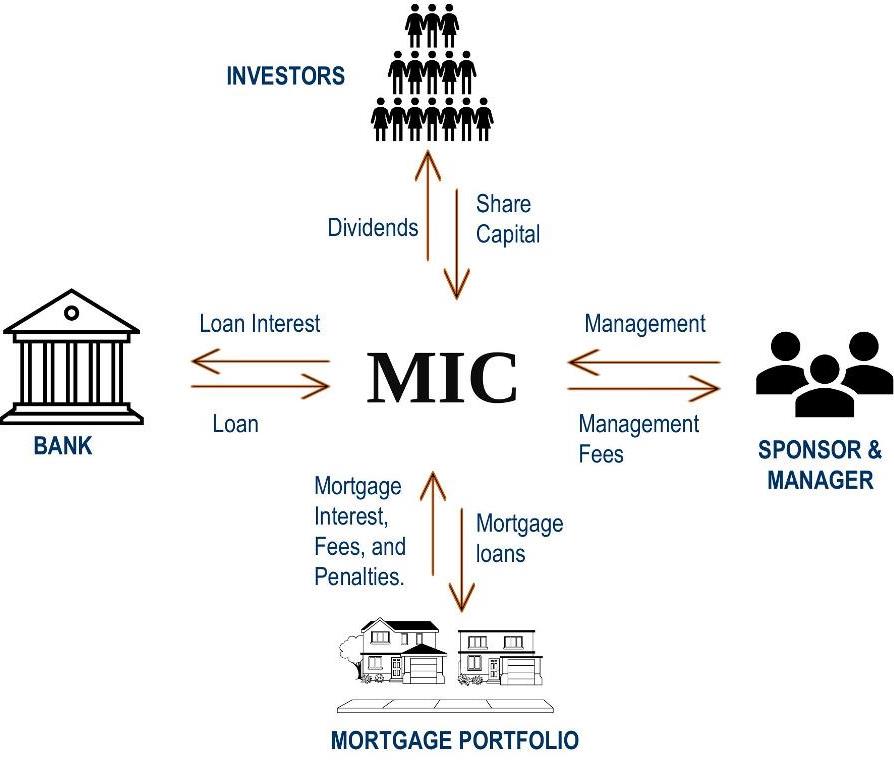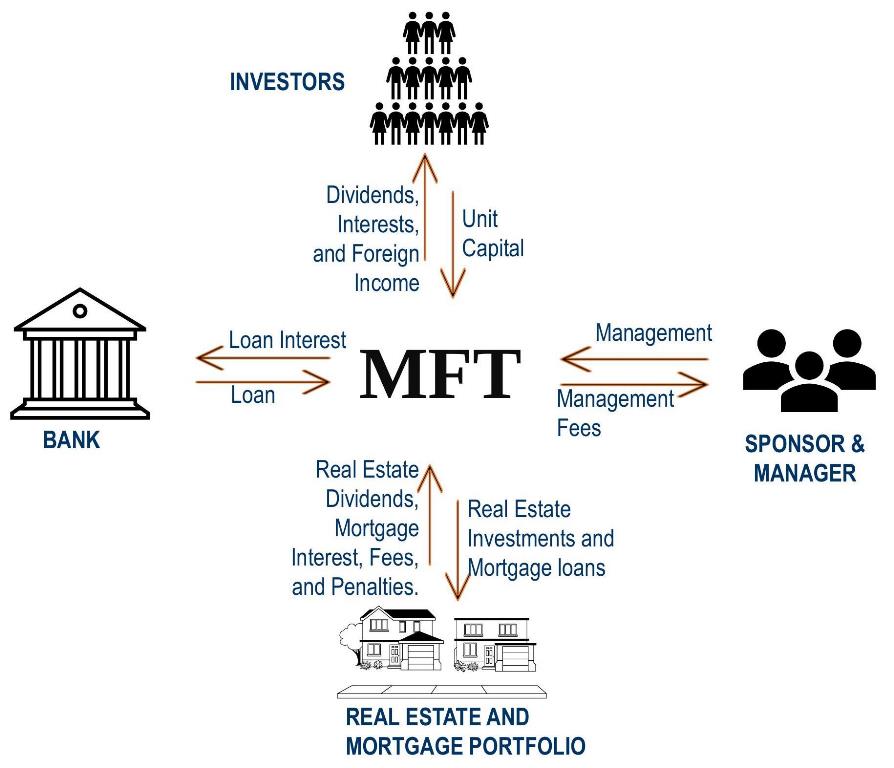Start and run a multi-million-dollar business.
Increase your business cash and net worth.
Start your MIC, meet compliance requirements and manage your MIC with MIC-IN-A-BOX.
Start and run a multi-million-dollar business.
Increase your business cash and net worth.
Start your MIC, meet compliance requirements and manage your MIC with MIC-IN-A-BOX.
MIC-IN-A-BOX Makes it Easy and Cost Effective
Everything you need to start and run your MIC or MFT has been sorted in our Box. We created MIC-IN-A-BOX just for you with services and tools to power the success of Start-up investors, Investment Groups, Charitable Groups, Churches. Insurance Companies, and clubs.


About MIC-IN-A-BOX
MIC-IN-A-BOX is a white label fund service of Dili Capital Corp. DiliCapital is an alternative asset management and project financing firm with head office in Toronto. To ensure a secured and enjoyable life for its investors DiliCapital manages capital and services that fuel businesses in real estate, infrastructure, technology, financial services, hospitality, energy, and mobility. Dili Capital Corp. is licensed with the Financial Regulatory Services Authority of Ontario with Mortgage Administrator Number: 12047.
Regulations
We are Subject to Regulations
Dili Capital Corp. and Palette Investment Management Inc., both of which hold mortgage administrator and “exempt market dealer” licenses from the Financial Service Regulatory Authority of Ontario (FSRA) and Ontario Securities Commission (OSC), respectively, as well as other provincial regulators across the nation. As a “registrant,” it is our responsibility to determine compliance of investment in your MIC & MFT if they are good fit and confirm the eligible of investors to purchase the product offerings. We are also license to provide the administrative services for your mortgage.
Dili Capital Corp with FSRA license # 12047 | Palette Investment Management Inc. with NRD # 49180.
Three steps to launch your MIC or Trust
Structure your MIC or Trust
MIC-IN-A-BOX works with you to tailor your fund to your needs when designing investment objective, and thesis, management, fees, and liquidity mechanics.
01


02
Fund raising from your group
Give your group and investors the added value and experience they deserve without the worry about KYC/AML, investor certification, investment execution because they are all streamlined in MIC-IN-A-BOX.
We Support you in running your fund
Let your investors benefit from our transparent and easy‑to‑understand investor support and reporting. MIC-IN-A-BOX can help with the back-office work so you can focus on marketing for capital, and investing in profitable real estate.
03

Launch my fund
You will:
Save Time: With our ready to operate model at your fingertips, there is no need to source and skill up staff. You hit the ground running.
Reduce Cost: MIC-IN-A-BOX negotiated package in your favour offers significant cost savings on legal, EMD, Accounting, and Administration fees by using reliable teams that are ready for implementation. MIC-IN-A-BOX makes it affordable for you to Start or Grow.
Grow And Succeed: With professional management, you can fast track your business growth with our support. You focus on what you do best – marketing for capital and approving great deals.
You Help the Ecosystem: There is no need for large office space and large staff numbers, which can keep your carbon footprint and fees low.
| MFT-IN-A-BOX | Law Firm | EMD | Mortgage Administrator | |
MIC Formation Cost MFT Formation Cost | $35,000 (One time) $85,000 (One time) | $50,000 (One time) $125,000 (One time) | No | No |
MIC formation Timeline MFT Formation Timeline | 1 month | 2 Months | No | No |
| Compliance & Administration Cost | 0.75% with Min of $4,000/month | No | 1% with a Min. of $5,000/month | 0.5% |
| Setup cost | No | No | $5,000 | $5,000 |
| Capital Raising | No | No | 6-8% | No |
| Investor Onboarding | Yes | No | Yes | No |
| Mortgage and Investor Administration | Yes | No | No | Yes |
| Management Software | $0 Setup Cost and $2,000/month | No | No | $5,000 setup Cost and $2,000/month |
White Label Model
Many Start-up investors, Investment Groups, Charitable Groups, Churches, Insurance Companies, and Investment Clubs wonder how they can focus on what they do best, without having to spend so much time on setup, legal, operations, Compliance, Execution, fund Administration, Technology and Systems, Audit, and Reporting to shareholders. MIC-IN-A-BOX provides this solution.
DiliCapital brings its experiences in asset management, Mortgage investment, management and partnership with the securities industry experts and registrants in providing this White Label Solution (MIC-IN-A-BOX) to meet funds sponsors challenges. Together with our partners we provide a turnkey solution to bring new funds to the market.
DiliCapital brings added value to your organization by providing expert assistance in any investment-related circumstance with the introduction of our white label fund solution for funds.
Our white label solution comes with the licensing, legal network, and management system and capability to create and support funds structures including MICs and MFTs.
MIC-IN-A-BOX help create, launch, and continuously provide the operation support you need so Sponsor can focus on marketing capital raising and growth of the fund. Our services include but not limited to:
- Business Belief Development
- Legal and Accounting Support
- Exempt Market Dealer (EMD)
- Mortgage Administration
- Technology and Software
- Accounting and Auditing
- Investor Reporting
- Execution Support
MIC & MFT Services
Our Mortgage Investment Corporation (MIC) and Mutual Fund Trust (MFT) services provides all the services sponsors need to plan, start, organize, meet regulatory compliance, manage, & grow your Mortgage Investment Corporation (MIC) in Canada, including Legal and Compliance Support; Exempt Market Dealer (EMD); Mortgage Administration; Execution Support; Technology and Software Systems; Fund Accounting, Auditing and Investor Reporting.
EMD and Mortgage Broker and Administration
Meeting the regulatory and compliance requirements for running a MIC & Trust can be burdensome. MIC-IN-A-BOX can simplify this responsibility of Sponsors. We provide the services required to meet the financial services and securities-related regulations for the setup and operation of MICs & MFTs, including:
- Assessing investors’ Know Your Client (KYC) requirements.
- Completing investment suitability analysis
- Monitoring subscription, agreement, and sale
- Managing capital raising according to regulation
- Ensuring MIC & MFT follow the securities regulations.
- Ensuring mortgage payments from borrowers on behalf of the fund
- Monitoring loan agreements and enforcing mortgage payments
- Provide advisory to investors, valuation of the fund
- Performance measurement, and reporting
- Facilitating Mortgage Broker onboarding
MIC & MFT Business Planning
We work with MIC and MFT Sponsors in business development, governance, technology and marketing planning and execution. We cover Asset formation and risk management. Our services include:
- Development of Investment Belief
- Code of Business Conduct
- Corporate Governance and charter
- Accounting, Investor Reporting planning
- Technology and Software Systems implementation
- Business Card Design and email and Website Content
- Website Design, Hosting, Logo, Brochure, and Flyer
- Business Execution Support
Legal, Accounting and Registered Plan
MIC-IN-A-BOX has existing relationships with lawyers and accountants who provide professional services at fixed, cost-effective negotiated rate for navigating through the intricacies of preparing documentation and filing with the securities commissions and regulators. Professional services include but not limited to:
- MFT Declaration and MIC & Manager Incorporation
- Offering Memorandum, filling and Subscription Agreement
- Dividend Reinvestment Plan and Corporation Resolution
- Management, Broker, and Administrator Agreements
- CPA Startup Financial Statement and investor Reporting
- Annual Tax Opinion Letter from Accountants or Lawyers
- Registered Plan Investment Registration with Trust Company
MIC-IN-A-BOX Frequently Asked Question (FAQ)
MIC FAQ
- A Mortgage Investment Corporation or MIC is a special company created by virtue of Section 130.1 of the Income Tax Act, a federal statute put in place in 1973 to enable investors to invest in residential mortgages.
- A Mortgage Investment Corporation (MIC) provides a way to pool funds to invest in residential mortgages thereby mitigating the time and risk of investing in individual mortgages. The pool of mortgages is continuously managed, with newly invested share capital, and the proceeds of repaid and discharged mortgages, being utilized to fund new mortgages.
- A MIC is a corporation formed under the rules set out in the Income Tax Act, Section 130.1.,
- A MIC pools shareholder capital and lends in Canadian residential and commercial mortgages,
- The MIC earns income from those mortgages on interest charges and general fees,
- Mortgage Investment Corporations (MICs) are tax exempt – They do not pay income tax,
- MICs are legally mandated to distribute all their earnings to investors,
- MIC dividend distributions are treated as interest income for tax purposes,
- MICs are “qualified investments” for registered plans including RRSPs, RRIFs, RESPs, TFSAs and others.

To Qualify as a MIC annually for tax purposes, the corporation must meet the guidelines below:
Income Tax Act, Section 130.1: Salient Rules
- A Mortgage Investment Corporation must have at least 20 shareholders.
- A MIC is generally widely held. No shareholder may hold more than 25% of the MIC’s total capital.
- At least 50% of a MIC’s assets must be comprised of residential mortgages, and/or cash and insured deposits at Canada Deposit Insurance Corporation member financial institutions.
- A MIC may invest up to 25% of its assets directly in real estate, but may not develop land or engage in construction. This ceiling on real estate holdings does not include real estate acquired as a result of mortgage default.
- A MIC is a flow-through investment vehicle and distributes 100% of its net income to its shareholders.
- All MIC investments must be in Canada, but a MIC may accept investment capital from outside of Canada.
- A MIC is a tax-exempt corporation.
- Dividends received with respect to directly held shares, not held within TFSA, RRSPs or RRIFs, are taxed as interest income in the shareholder’s hands. Dividends may be received in the form of cash or additional shares.
- MIC shares are qualified TSFA, RRSP and RRIF investments.
- A MIC may distribute income dividends, typically interest from mortgages and revenue from property holdings, as well as capital gain dividends, typically from the disposition of its real estate investments.
- A MIC’s annual financial statements must be audited.
- A MIC may employ financial leverage by using debt to partially fund assets.
Individuals, corporations, charitable organizations, Clubs, and Other Groups.
The Sponsors are the founders of the MIC, who must do the following:
- Register the Corporation, and Attract a minimum of 20 investors to the MIC,
- Arrange for Exempt Market Dealer and Mortgage Administrator companies.
- Pay for the initial legal cost of MIC offering and subscription documentation, and
- Provide monitoring and reporting to the investors.
- A simple way to start and run a profitable multi-million-dollar fund
- Add value to your membership to grow income and capital
- Boost your operating revenue from fees from managing your MIC
- Take a advantage of group economics of scale
- Mortgage Investment Corporations (MICs) are owned by the investors.
- A MIC must be widely held. No shareholder may hold more than 25% of the MIC’s total capital.
- A MIC’s revenues are comprised of mortgage interest and fee income.
A MIC’s Expenses are predominantly comprised of:
- Offering cost – registration, the legal cost for offering memorandum and subscription documentation,
- Management fees, audit and other professional fees, and loan interest, if the MIC is employing debt in addition to share capital.
The EMD and Mortgage Administrator help with:
- Adherence to regulatory compliance requirements
- Administering the mortgages and management of the MIC,
- Sourcing of suitable mortgage investments,
- Analysis of mortgage applications, negotiation of suitable interest rates, terms, and conditions,
- Instruction of solicitors, mortgage portfolio and general administration.
- Secured Investment: Mortgages purchased by the MIC are secured by Canadian Residential Real Estate.
- Safety through Diversification: Investors in MIC own a diversified portfolio of mortgage loans which can reduce risks.
- Capital Preservation Strategy: The MIC investment strategy has a low correlation with traditional assets that can help preserve capital invested, especially given the volatility of the traditional asset class.
- Superior Returns: Earn up to 9% per year compared with 2% on GICs. MIC investments have traditionally outperformed bonds and GICs over the long term.
- Professional Management and Regulatory Oversight: The management of the MIC has oversight from the Ontario Securities Commission (OSC) and Financial Services Regulatory Authority of Ontario (FSRA).
- Regular Dividend Distribution: Investors receive their dividends on quarterly or monthly dividend distribution dates.
- Tax Savings: Mortgage investment funds are RRSP, TFSA and RRIF eligible.
- No Double Taxation: MIC is tax-free so, only the dividend from a MIC is taxed as interest income in the hands of the investors. This is a significant advantage for MIC investors because this increases the yield as the two levels of tax applied to regular corporations and their investors are avoided.
- Shareholders/Investors: These individuals and corporations are also known as ‘Unit Holders’ or “Investors”. Such investors would subscribe to units in the MIC. Unit holders have the right to receive any form of return from the asset, according to the initial agreement entered by the unit holder and the company.
- Exempt Market Dealer (EMD): The EMD has the sole responsibility of overseeing the capital raising and compliance with the securities’ regulatory requirements of the MIC. The EMD is responsible for making sure of investor suitability, completing the subscription agreement, know your client (KYC) and know your product (KYP) forms.
- Legal Firm: The law firm prepare the initial Offering Memorandum, Subscription Agreement and guide for completing a subscription agreement, the exemption from prospectus certificates and acknowledgements, the know your client (KYC) and know your product (KYP) forms.
- Manager or Sponsor: To safeguard the interests of the investors, a Board of Directors is appointed by the MIC Manager to act for the benefit of the shareholders.
- Mortgage Administrator: The Mortgage Administrator is responsible for managing mortgage investment – receiving mortgage payments from borrowers on behalf of the MIC, monitoring the agreement and taking steps and enforcing mortgage payments. The administrator is responsible for advising the shareholder, valuation of the fund and management of the fund.
- Mortgage Broker: In a MIC the Mortgage Broker is responsible for negotiating the best available terms and rates with lenders. They consider a borrower’s financial history, down payment when necessary and the type of property they are interested in borrowing against and liaison between a borrower and a lender and do much of the paperwork.
- CPA Firms: The Income Tax Act requires that 100% of a MIC’s annual net income be audited by an external CPA firm to ensure the MIC’s net income is distributed to its shareholders, in the form of a dividend.
MFT FAQ
A mutual fund trust is a unit trust whose units are all held and circulate in accordance with the prescribed conditions governing:
- the number of units holders;
- the dispersal of ownership of the units; and
- public trading of the units.
A Mutual fund Trust (MFT) provides a way to pool funds to invest along with other unitholders (investors in the fund) in investing in certain real property, and certain activities relating to real property. The exact mix of the investment depends on the objectives of the fund, with the aim to generate income for the fund, generally in the form of interest or dividends. All of the income received by the fund (net of fund expenses) is paid out to unitholders on a monthly, quarterly or annual basis, as it’s earned.
- A Mutual Fund Trust (MFT) is a Trust formed under the rules set out in the Income Tax Act, Section 132
- A MFT pools shareholder capital and invests in real estate related products – mortgages and real estate.
- Units may be “qualified investments” for RRSPs, RRIFs, RESPs, TFSAs and other registered plans
- Exemption from Part XII.2 tax for non-residents of Canada to reduce their tax burdend,
- Capital gains refund mechanism that to limit potential double taxation on capital gains
- Exemption from alternative minimum tax which can trigger unexpected tax liability,
- Exemption from 21 year deemed disposition rule
- The MFT earns income from those real estates and mortgages on capital gains and interest charges and general fees.
- If all income earned by MFT is distributing to its unitholders, it is tax free,
- If the MFT retains earnings, the fund can use the distributed income to Unitholder as benefits to minimizing the overall taxes paid by the fund, since mutual fund trusts are taxed at a rate equivalent to the highest personal tax rate.
- Distributing income to unitholders, most of whom are taxed at a lower marginal tax rate than the mutual fund, generally results in a lower amount of total taxes paid.
- By reducing tax paid by the fund, more income can be distributed to investors, which improves the return on their investment.

To qualify as a “mutual fund trust (MFT)”, a trust must generally satisfy the following conditions on an ongoing basis:
- The trust must be resident in Canada for the purposes of the Tax Act;
- The trust must be a “unit trust” for the purposes of the Tax Act;
- To qualify as a “unit trust”, the trust must generally pass one of the following tests:
- at least 95% of the units of the trust (based on their fair market value) have conditions attached to them requiring the trust to accept, at the demand of the unitholder and at prices determined and payable in accordance with the conditions, the surrender of the units (the “Redeemable on Demand Condition”), or
- the assets, activities and income of the trust satisfy a prescribed set of character and dispersal requirements.
- The trust must restrict its undertakings to:
- the investing of its funds in certain property, and
- certain activities relating to real property; and
- The trust must satisfy certain prescribed conditions, including the requirement that 150 separate unitholders each hold, in respect of a single qualifying class of units, not less than one “block of units”1 of the class having an aggregate fair market value of at least $500 (the “150 Unitholder Condition”).
Individuals, corporations, charitable organizations, Clubs, and Other Groups.
The Sponsors are the founders of the MFT, who must do the following:
- Issue the Declaration of Trust, Operating Trust, offering documentation, and Attract a minimum of 150 investors to the MFT,
- Arrange for Exempt Market Dealer and Mortgage Administrator companies.
- Pay for the initial legal cost of MFT offering and subscription documentation, and
- Provide monitoring and reporting to the investors.
- A simple way to start and run a profitable multi-million-dollar fund
- Add value to your membership to grow income and capital
- Boost your operating revenue from fees from managing your MIC
- Take a advantage of group economics of scale
- Mortgage Investment Corporations (MICs) are owned by the investors.
- MFT must be widely held by a minimum of 150 unitholders and there is no restriction on numbers of units that can be held by an individual or family.
MFT’s revenues are comprised of dividend and mortgage interest and fee income.
MFT’s Expenses are predominantly comprised of:
- Offering cost – registration, the legal cost for offering memorandum and subscription documentation,
- Management fees, audit and other professional fees, and loan interest, if the MFT is employing debt in addition to share capital.
The EMD and Mortgage Administrator help with:
- Adherence to regulatory compliance requirements
- Administering the mortgages and management of the MFT,
- Sourcing of suitable mortgage investments,
- Analysis of mortgage applications, negotiation of suitable interest rates, terms, and conditions,
- Instruction of solicitors, mortgage portfolio and general administration.
- Secured Investment: Mortgages purchased by the MFT are secured by Canadian Residential Real Estate.
- Safety through Diversification: Investors in MFT own a diversified portfolio of real estate and mortgage loans which can reduce risks.
- Capital Preservation Strategy: The MFT investment strategy has a low correlation with traditional assets that can help preserve capital invested, especially given the volatility of the traditional asset class.
- Superior Returns: Earn up to 9% per year compared with 2% on GICs. MFT investments have traditionally outperformed bonds and GICs over the long term.
- Professional Management and Regulatory Oversight: The management of the MFT has oversight from the Ontario Securities Commission (OSC) and Financial Services Regulatory Authority of Ontario (FSRA).
- Regular Dividend Distribution: Investors receive their dividends on quarterly or monthly dividend distribution dates.
- Tax Savings: Mortgage investment funds are RRSP, TFSA and RRIF eligible.
- No Double Taxation: MFT is tax-free if all dividends are distributed, only the distribution from an MFT is taxed as interest income in the hands of the investors. This is a significant advantage for MFT investors because this increases the yield as the two levels of tax applied to regular corporations and their investors are avoided.
- Unitholders: These individuals and corporations are also known as ‘Unit Holders’ or “Investors”. Such investors would subscribe to units in the MFT. Unit holders have the right to receive any form of return from the asset, according to the initial agreement entered by the unit holder and the company.
- Exempt Market Dealer (EMD): The EMD has the sole responsibility of overseeing the capital raising and compliance with the securities’ regulatory requirements of the MFT. The EMD is responsible for making sure of investor suitability, completing the subscription agreement, know your client (KYC) and know your product (KYP) forms.
- Legal Firm: The law firm prepare the initial Declaration of Trust, Operating Trust, Offering Memorandum, Subscription Agreement and guide for completing a subscription agreement, the exemption from prospectus certificates and acknowledgements, the know your client (KYC) and know your product (KYP) forms.
- Manager or Sponsor: To safeguard the interests of the investors, a Board of Trustee is appointed by the MFT Manager to act for the benefit of the shareholders.
- Mortgage Administrator: The Mortgage Administrator is responsible for managing mortgage investment – receiving mortgage payments from borrowers on behalf of the MFT, monitoring the agreement and taking steps and enforcing mortgage payments. The administrator is responsible for advising the shareholder, valuation of the fund and management of the fund.
- Mortgage Broker: In a MFT the Mortgage Broker is responsible for negotiating the best available terms and rates with lenders. They take into account a borrower’s financial history, down payment when necessary and the type of property they are interested in borrowing against and liaison between a borrower and a lender and do much of the paperwork.
- CPA Firms: The Income Tax Act requires that 100% of a MFT’s annual net income be audited by an external CPA firm to ensure the MFT’s net income is distributed to its shareholders, in the form of a dividend.
DiliCapital is an asset management and project financing firm offering cash flow, capital preservation and growth opportunities across private equity, credit, and project financing.
The Firm
Services
© 2006 – 2022 Dili Capital Corp.
By accessing and using this website and any associated DiliCapital (“our,” “we,” or “us”) products, you agree to DiliCapital Terms of Use, Privacy Policy and Disclosures. Please carefully read these documents.
Information on this website is not intended to provide legal, accounting, financial or tax advice and should not be relied upon in that regard. This Website is no substitute for advice from a qualified professional, who should be consulted where expert advice or matter-specific advice is required. While we endeavour to keep the information up to date and correct, we make no representations or warranties of any kind, express or implied, about the completeness, accuracy, reliability, suitability, or availability concerning the Website or the information, products, services, or related graphics contained on the Website for any purpose. Therefore, any reliance you place on such information is strictly at your own risk.
Through this website, you can link to other websites which are not under the control of a DiliCapital. We have no control over the nature, content, and availability of those sites. The inclusion of any links does not necessarily imply a recommendation or endorse the views expressed within them. Every effort is made to keep the website up and running smoothly. However, DiliCapital takes no responsibility for, and will not be liable for, the Website being temporarily unavailable due to technical issues beyond our control.
IN MAKING AN INVESTMENT DECISION, INVESTORS MUST RELY ON THEIR OWN EXAMINATION OF THE ISSUER AND THE TERMS OF THE OFFERING, INCLUDING THE MERITS AND RISKS INVOLVED. INVESTMENTS IN DILICAPITAL. ARE SPECULATIVE, ILLIQUID, AND INVOLVE A HIGH DEGREE OF RISK, INCLUDING THE POSSIBLE LOSS OF YOUR ENTIRE INVESTMENT.
